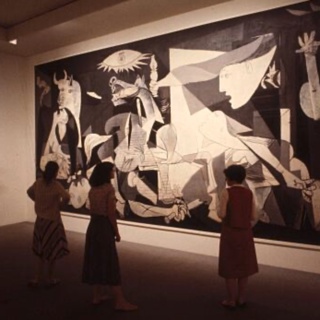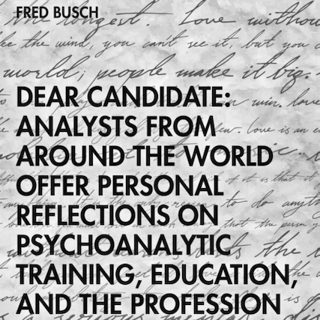
Fred Busch - Dear Candidate: Analysts from around the World Offer Personal Reflections on Psychoanalytic Training, Education, and the Profession.
In this first-of-kind book, senior psychoanalysts from around the world offer personal reflections on their own training, what it was like to become a psychoanalyst, and what they would like most to convey to the candidate of today. With forty-two personal letters to candidates, this collection helps analysts in training and those recently entering the profession to reflect upon what it means to be a psychoanalytic candidate and enter the profession. Letters tackle the anxieties, ambiguities, complications, and pleasures faced in these tasks. From these reflections, the book serves as a guide through this highly personal, complex, and meaningful experience and helps readers consider the many different meanings of being a candidate in a psychoanalytic institute. Fred Busch, Ph.D. is a Training and Supervising Analyst at the Boston Psychoanalytic Society and Institute. Dr. Busch has published over 70 articles in the psychoanalytic literature, and four books, primarily on the method and theory of treatment. He has been on numerous editorial boards. His work has been translated into 10 languages, and he has been invited to present over 160 papers and clinical workshops nationally and internationally. Dear Candidate was published by Routledge in 2020. A pre-publication review from Charles Baekeland, I.P.S.O. President-elect: "It is possible that you will be surprised and educated by what you find in this book. Determination, kinship, wisdom (and some heartbreak) walk hand in hand through its pages with a rousing breadth, unlikely to be available at a single institute. The writers of the letters have been generous with their experience. Agreements emerge: the profound value of personal analysis, free from artificial institutional requirements, and the necessity of steeping oneself in the literature. Another voice is also audible. Readers of Dante will hear: "Retain all hope, ye who enter here––much hardship awaits you, as do human splendors'."
24 Jan 202125min
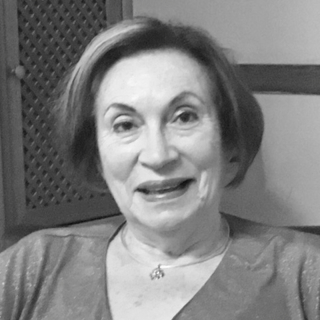
Ilany Kogan - Narcissistic Fantasies in Film and Fiction - Masters of the Universe.
In this episode, in collaboration with the IPA Publications Committee, chaired by Gabriela Legorreta, we hear from Ilany Kogan who will be speaking about her new book Narcissistic Fantasies in Film and Fiction - Masters of the Universe. Here she studies narcissistic fantasies from a psychoanalytic perspective through the analysis of various protagonists in literature and the performing arts. One of the author's main interests is the narcissistic desire to be "Master of the Universe", a god-like, omnipotent and immortal figure. Although this wish is a universal propensity of early origin, it is also relevant to the identification with narcissistic leaders in the modern world. Ilany Kogan is a Training and Supervisory Analyst in the Israel Psychoanalytic Society. She is one of the founders of The Psychotherapy Centre for the Child and Adolescent in Bucharest, Romania. She worked as supervisor for the IPA Study Group in Istanbul, Turkey and currently supervises in in Germany and Romania. For many years she also worked with the offspring of Holocaust survivors and published extensively on this topic. In 2003 she was awarded the Elise M. Hayman Award for her studies on the Holocaust and Genocide. She also received the Sigourney Award for lifetime achievement in her work, in 2016. Narcissistic Fantasies in Film and Fiction - Masters of the Universe. Published April 17, 2020 by Routledge, 178 Pages.
17 Jan 202123min
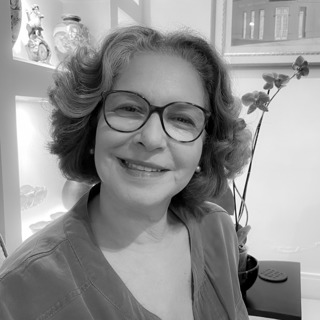
Débora Regina Unikowski - The Baby On The Couch.
In this podcast we hear from Débora Regina Unikowski about “The baby on the couch”. Here she shares insights about her work with babies and parents, and how this helps us better understand ‘the baby’ within the mind of the adult. These findings provide an illuminating framework for working with patients during the Pandemic. “The baby on the couch” is also the title of her course offered at the Psychoanalytic Society of Rio de Janeiro in 2018, which was also presented at the XXVII Brazilian Congress of Psychoanalysis in 2019. Débora Regina Unikowski, born in Porto Alegre, is a Training, Supervising, Child and Adolescent psychoanalyst at the Psychoanalytical Society of Rio de Janeiro, and current Director of the Institute for Teaching Psychoanalysis. Her interest in babies and the beginnings of mental life goes back to her internship at the Unité des Petits at the Fondation Rothschild in Paris working with Myriam David, where she observed young at risk children, in the prevention of autism and childhood psychosis. She also worked with pregnant women in Venezuela and participated in the Action-Formation research conducted by Serge Lebovici, observing and treating mothers and babies in a Child Mental Protection Center. Now back in Brazil, in addition to working in private practice in Rio De Janeiro, Débora also disseminates psychoanalysis among health and education professionals. Some published works: UNIKOWSKI, Débora Regina. Alicerces da maternidade: função continente da observação psicanalítica e do pediatra. In: ZORNIG, Silvia Maria Abu-Jamra; ARAGÃO, Regina Orth (Org.). Nascimento: antes e depois, cuidados em rede. Curitiba: Honoris Causa, 2011. p.239-245. UNIKOWSKI, Débora Regina. The development of the maternal feeling in child analysis: Ana and Diana. In: LARTIGUE, Teresa; VARELA, Olga (Ed.). Gender and psychoanalysis: clinical contributions. Aguascalientes [México]: Architecthum Plus, 2013. p.45-50. UNIKOWSKI, Débora Regina. Desenvolvimento da função simbólica e "analisabilidade". Psicanalítica, Rio de Janeiro, v.17, n.1, p.55-62, 2016. UNIKOWSKI, Débora Regina. O bebê no divã: reflexões sobre a clínica psicanalítica na primeira infância. Primórdios, Rio de Janeiro, v.5, n.5, p.47-57, 2018. This episode is available also in Portuguese
10 Jan 202129min
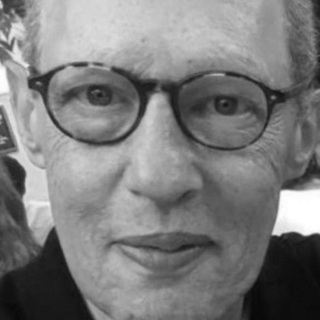
Leopoldo Bleger - Some Remarks On The Formation Of Psychoanalysts.
Leopoldo Bleger left Argentina in 1976, where he trained as medical doctor and psychiatrist, and since then he lives in Paris. He is a «supervisor analyst» of the French Association (Association Psychanalytique de France). He has published several papers on the work of Melanie Klein, psychoanalysis in Río de la Plata (Argentina and Uruguay) and on problems of methodology in psychoanalysis. He is member of the EPF (European Psychoanalytic Federation) Working Party on Specificity of the psychoanalytic treatment today. He was General Secretary of the European Federation (2012-2016) and President of his society (2017-2019). A first version of this paper was read in the Extraordinary Symposium of EPF (European Federation) in November 2017. This Symposium was organized to discuss the vote of the change of the number of sessions for training analysis, a decision voted by IPA in July 2017, a decision strongly resisted by many European societies. It was published afterwards in a book edited by Alberto Cabral and Abel Fainstein, On Training Analyses. Debates, in 2019. This episode is available also in French and Spanish
4 Jan 202119min
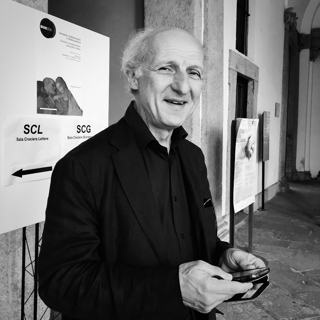
Andrea Marzi - Some Basic Points on Psychoanalysis and the Internet.
In this episode we’ll listen to Andrea Marzi on Some basic points on Psychoanalysis and the Internet. Actually, it’s not only psychoanalysis which reads the multifaceted nature of virtual reality, but also the reverse, where cyberspace also affects and influences seminal reflections about psychoanalysis itself and the virtual space of the mind. Psychoanalysis needs to develop an enquiry into the nature of virtual reality and the world of informatics and the new media. Together with a profound reflection from cyberspace about psychoanalysis itself and the “virtual spaces” in the mind, their (possible) existence and meaning, their role within the setting, and the consequences in the analytic field. Andrea Marzi MD, is a psychiatrist and psychoanalyst with a PhD in Medical Ethics. He is a full member of the International Psychoanalytical Association, Italian Psychoanalytical Society and an active member of the American Psychoanalytic Association, holding in these fields several national and international functions in groups and committees. He is an IPA Member of the Task Force on Remote Analysis in Training and visiting Fellow at the University of Cambridge (UK). He worked in the Department of Forensic Psychopathology and has been a former Professor of Developmental Psychology at the University of Siena. He is also Supervisor in institutions and the NHS, and has published several dozens of scientific articles in national and international journals, as well as many books. Psychoanalysis, Identity, and the Internet, Published September 19, 2016 by Routledge. This episode is available also in Italian
15 Des 202021min
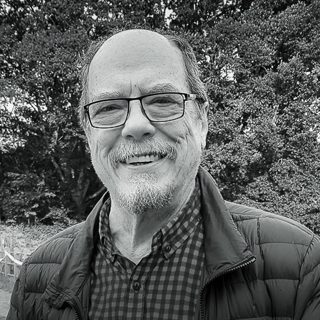
Gregorio Kohon - Monuments and Denials: Creating and Re-creating History.
In today’s episode, we’ll listen to Gregorio Kohon’s work on “Monuments and Denials: Creating and Re-creating History”, that follows on from his book on Reflections on the Aesthetic Experience - Psychoanalysis and the Uncanny. It is argued that denials are daily events at all levels of human existence. Denials can also work in a negative way: memories, for example, can create events that might have never occurred; even if not true, mnemic inventions may still make sense and become meaningful. Historical and religious monuments are a case in point. They are political statements which work through denials, not always representing historical “truth”. Gregorio Kohon is a Training Analyst from the British Psychoanalytical Society. He lived in Australia, where he co-founded (together with Valli Shaio Kohon) The Brisbane Centre for Psychoanalytic Studies. He published No Lost Certainties to be Recovered; Reflections on the Aesthetic Experience - Psychoanalysis and the Uncanny, and Considering the Nature of Psychoanalysis. He edited The British School of Psychoanalysis - The Independent Tradition; The Dead Mother - The Work of André Green; and British Psychoanalysis - New Perspectives in the Independent Tradition. He edited, together with Rosine Perelberg, The Greening of Psychoanalysis, and co-authored with André Green, Love and its Vicissitudes. His works have been translated into many languages. He is also a poet and a novelist. Reflections on the Aesthetic Experience - Psychoanalysis and the Uncanny, Routledge (2015). This episode is available also in Spanish
8 Des 202022min
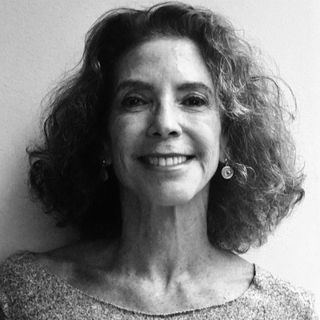
Maria Paz de la Puente - Who's Afraid of the Impasse? Reflections about a Crossroads.
This episode, Who's Afraid of the Impasse? Reflections about a Crossroads, stems from a clinical concern that the author has seen become more and more important during her practice as a psychoanalyst, appearing often in the clinical material of her colleagues and those she supervises, as well as in her own clinical experience. Many times, the Impasse tends to go unnoticed. It gets confused with other clinical phenomena, which makes it necessary to illuminate it in a special way. Its approach and complex technical implementation depends on it. In this episode she tries to look at the topics mentioned, emphasizing the necessary diagnosis and the vicissitudes of its approach. Maria Paz de la Puente is a Peruvian psychoanalyst living in Lima, Peru. She is a Didactic member of the Peruvian Society of Psychoanalysis (SPP), FEPAL and the IPA. She was an IPA board member, as well as an SPP Vice President on two occasions. She also teaches and supervises at her institution, the SPP, and is currently working full time doing clinical work as well community activity and work. Link to the paper https://drive.google.com/file/d/1Q07NTx1S2bOpRUDY0O_u2jSWjoc-DSI-/view?usp=sharing This episode is available also in Spanish
1 Des 202023min
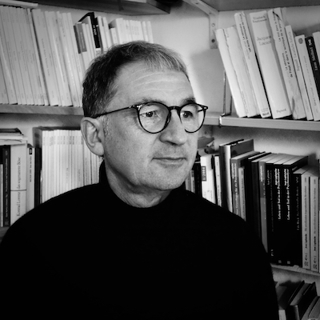
Udo Hock: Distortion/Entstellung: a fundamental concept of psychoanalysis.
In this episode Udo Hock will present his paper on the notion of “distortion” in psychoanalysis. He has been working for many years on this notion that has been neglected by post-Freudian authors: the “Distortion” or “Disfigurement”, “Entstellung” in German. In his podcast he will show that the term has the status of a fundamental concept in Freud's work. It characterizes the method, the metapsychological concepts as well as the technique of psychoanalysis which is in the tradition of Freud. It is a guideline not only for our clinical work, but also for our thinking on the Unconscious. After studies in Berlin and Paris, Udo Hock worked as a psychoanalyst in private practice in Berlin. He is member of the Publications Committee of the IPA; member of the Scientific Committee of the Foundation "Jean Laplanche“ in Paris; translator and editor of the work of Jean Laplanche into German; coeditor of the German psychoanalytical journal “Psyche” and lecturer at the International Psychoanalytical University of Berlin. He has written many articles about the classical themes of psychoanalysis, as the concepts of “Drive”, “Time”, “Infantile Sexuality”, “Transference”, “Repetition”, “Cover Memory”- and on the work of Jean Laplanche. He is the author of the book “Thinking the Unconscious: Repetition and Death Drive“ published in German in 2012. Link to the paper https://drive.google.com/file/d/1RONNz2lFwWuKvzyVS0AIL5ntF4bxEfTW/view?usp=sharing This episode is available also in German and French
26 Nov 202033min
